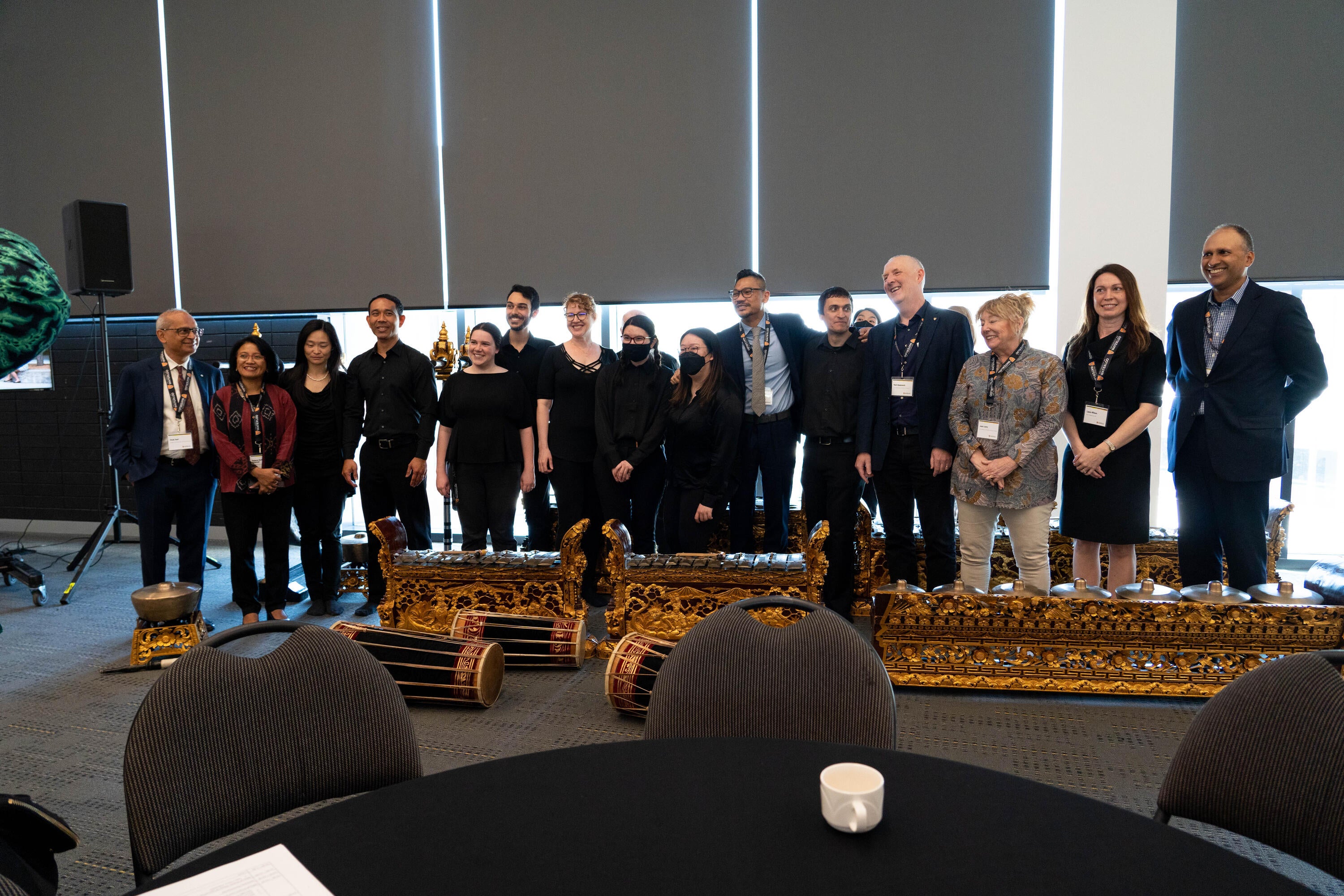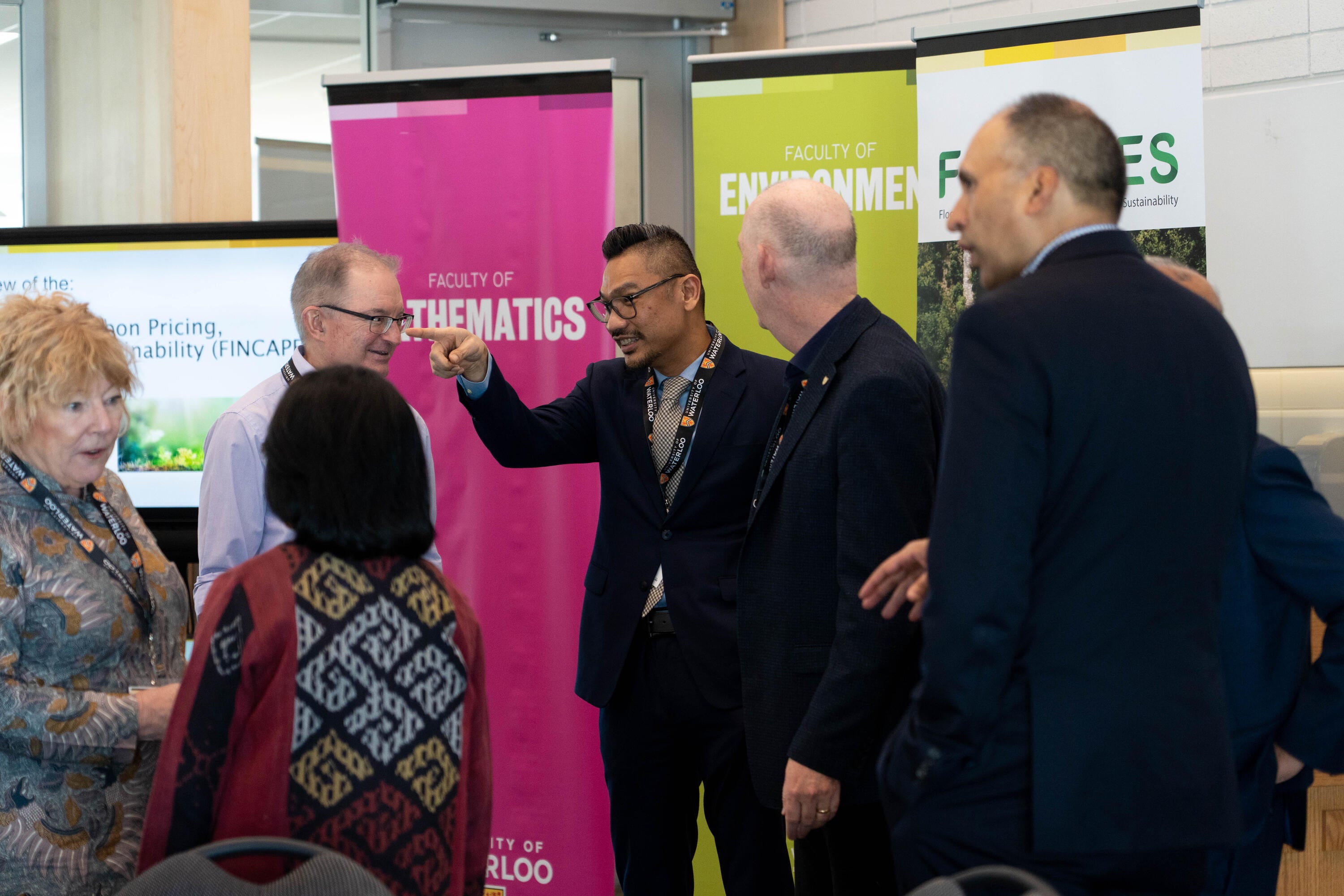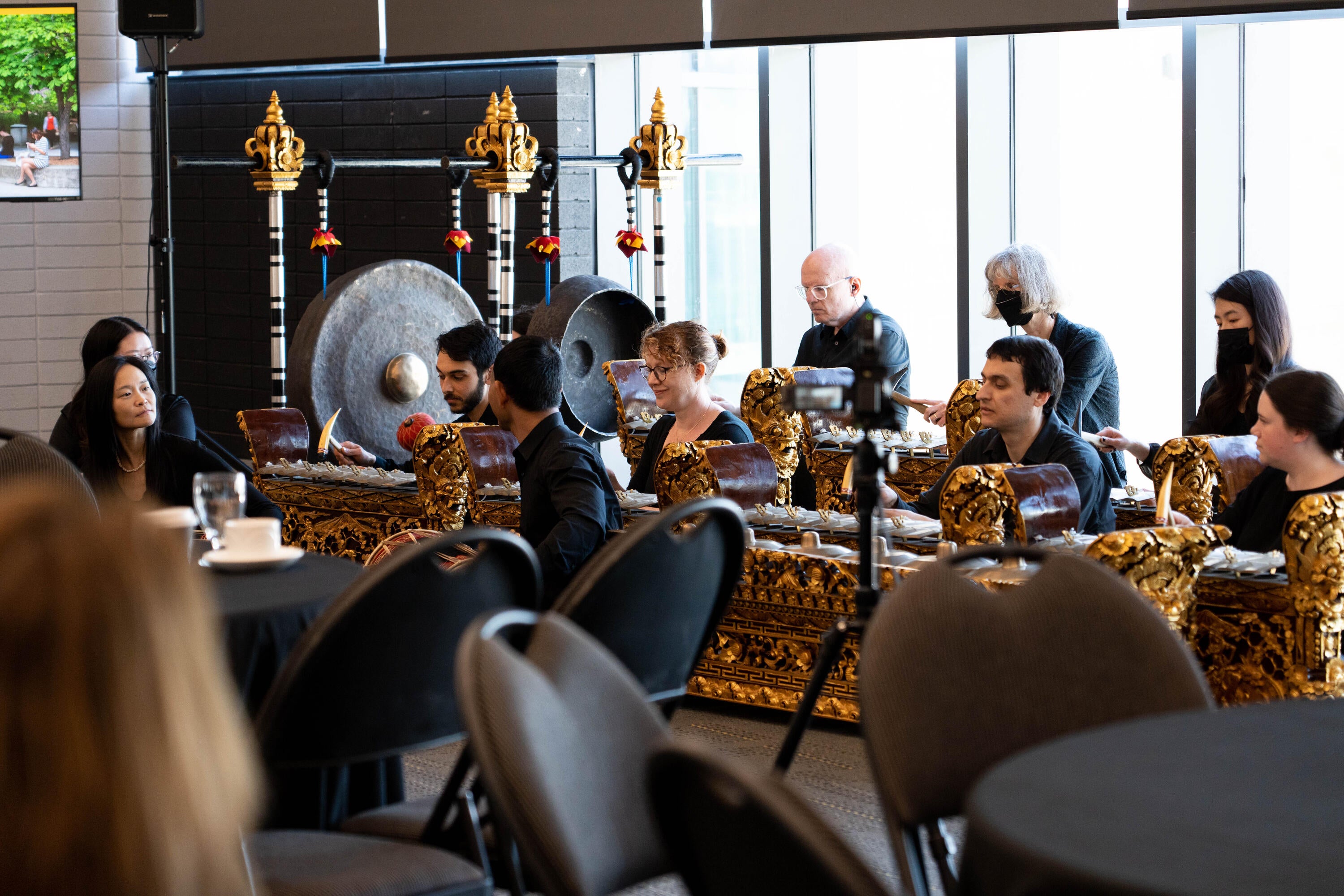Flood Impacts, Carbon Pricing and Ecosystem Sustainability (FINCAPES) is a multi-stakeholder feminist initiative, and a collaboration with Indonesia, enabling climate adaptation and conservation of biodiversity
By Sam Toman, University Relations
In April 2019, the government of Indonesia announced a 10-year plan to transfer all government offices away from its capital Jakarta to a new sustainable, planned capital city. Jakarta is well-known for its traffic congestion and poor air quality; however, sea level rise also played a role in the island nation’s unprecedented decision.
“When I heard the news that President Joko Widodo will implement this decision, I was very ecstatic,” says Maydison Ginting, the FINCAPES lead at Prasetiya Mulya University, one of the Indonesian partner universities for FINCAPES. “The move to relocate the capital city to East Kalimantan will emphasize green and environmentally sustainable economic principles. This is proof of Indonesia's commitment to achieving net zero emissions by 2060.”
Indonesia’s bold leadership in managing climate change and sustainability is a primary reason the University of Waterloo chose to collaborate with Universitas Prasetiya Mulya (UPM) on this innovative program.
Flood Impacts, Carbon Pricing and Ecosystem Sustainability (FINCAPES) is a multi-stakeholder, gender responses initiative in Indonesia supporting adaptation and mitigation of climate change and conserving biodiversity. Funding includes $15,000,000 from Global Affairs Canada and $750,000 from Prasetiya Mulya.

On April 14th UWaterloo was visited by Daniel Tumpal S. Simanjuntak, Indonesian Ambassador to Canada for the Canadian launch of FINCAPES. On the UWaterloo side, the project is led by Prof. Stefan Steiner, PI, Statistics and Actuarial Science in the Faculty of Math. As a collaboration with the Faculty of Environment, Prof Steiner will work with domain experts; Water Institute member Brent Doberstein and David Landriault of the Faculty of Mathematics. The Project Directors, Bill Duggan and Jean Lowry conceived the project as an evolution of the successful Risk Management, Economic Sustainability, and Actuarial Science Development in Indonesia (READI) project in the Department of Statistics & Actuarial Science.
Though similar in nature to READI, FINCAPES includes some important developments. “This project is unique because UPM and other Indonesian universities are the principles in the project. Other actions to fight climate change are usually carried out by the government,” says Ginting. “With academia as the leading role, this project will focus on research and science-based activities in tackling climate change.”
With the recent launch of Waterloo at 100, UWaterloo President Vivek Goel noted that, “as we move forward with this new vision, the really exciting opportunity is at the intersections of the Global Futures and the intersections of disciplines.”
FINCAPES is exactly that. Unconventional in its synthesis of actuarial science, statistics, and geography and environmental management, it breaks down traditional siloes in academia in order to carve a new path to help manage what Goel, who visited Jakarta earlier this year, has called, “the greatest collective action problem humanity has ever faced.” Mark Giesbrecht, dean of the Faculty of Mathematics, spoke on behalf of his Faculty at the launch and said, “In all our work, we depend upon collaboration: between individual researchers, and across disciplines.”
Our researchers are partnering with hospitals to address public health challenges, helping develop cleaner forms of energy, and transforming the aeronautics industry to be greener and more efficient.” This theme was echoed by Johanna Wandel who in representing Environment dean Bruce Frayne added that, “Countries cannot act in isolation and expect to change the course of this whole-of-society challenge.”

The global systems impacted by climate change are inextricably interconnected, and so our efforts to address both the causes and consequences of climate change must also be interconnected.” Despite the COVID-19 pandemic, Indonesia's GDP grew by 2.97 per cent in 2020, making it the largest economy in Southeast Asia with a GDP of around $1.1 trillion. The country is also emerging as a digital economy with a growing number of startups and a rapidly expanding e-commerce sector.
The event was also an opportunity to celebrate another emerging collaboration between UWaterloo and the nation of islands. Waterloo’s faculty of Environment recently signed a Memorandum of Understanding with Indonesia’s Diponegoro University and are exploring a potential partnership with the Institute of Technology Bandung.
All parties involved agree that the project is less about UWaterloo researchers leading, as it is about helping its Indonesian partners build capacity to lead the project themselves. “The University of Waterloo is very helpful and generous in providing guidance and expertise in Actuarial and Co-op fields,” says Ginting. “Waterloo is the right and best partner for this project because of their strong commitment and qualified expertise in the Climate Finance related area.”
From the perspective of Global Affairs Canada, the project is aligned with Canada's Feminist International Assistance Policy. It will bolster Indonesia's climate change adaptation and mitigation efforts, particularly in response to rising sea levels, environmental degradation, and biodiversity loss. By supporting research led by women and partnering with academic institutions to enhance climate change policy frameworks, it’s advancing feminist principles and promoting a sustainable future.
For Ginting, the project is also an important experiential learning tool. As with READI, UWaterloo will be exporting elements of its world-leading co-op education to UPM. “With the help of the University of Waterloo, UPM is becoming a pioneer in co-operative education in Indonesia. Just like the co-op element of READI, FINCAPES will also benefit from student-supported climate and finance work done by an emerging generation of Indonesian climate leaders.”
